R. H. Tawney Quotes & Sayings
Enjoy the top 23 famous quotes, sayings and quotations by R. H. Tawney.
Famous Quotes By R. H. Tawney
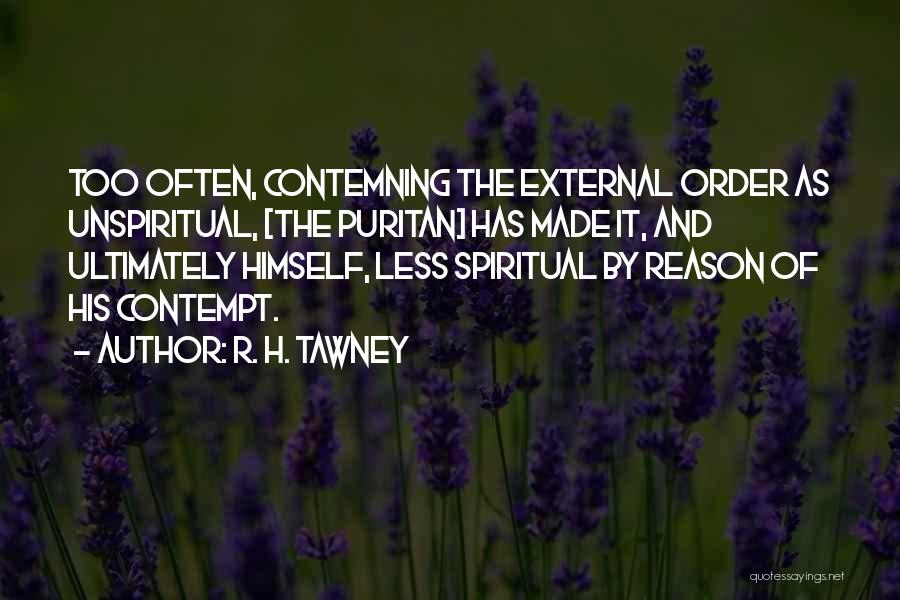
Too often, contemning the external order as unspiritual, [the Puritan] has made it, and ultimately himself, less spiritual by reason of his contempt. — R. H. Tawney

Virtues are often conquered by vices, but their rout is most complete when it is inflicted by other virtues, more militant, more efficient, or more congenial. — R. H. Tawney

It is probable that democracy owes more to nonconformity than to any other single movement. — R. H. Tawney
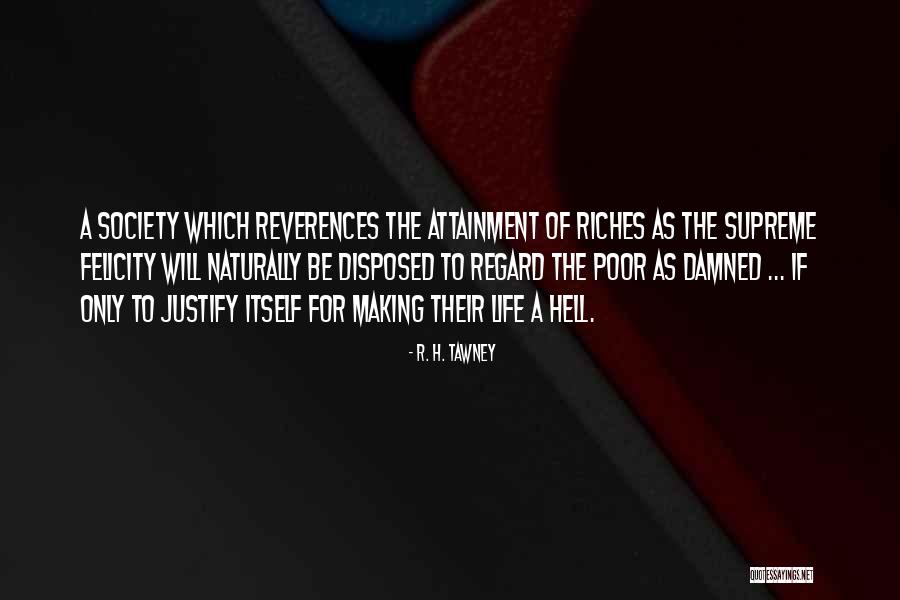
A society which reverences the attainment of riches as the supreme felicity will naturally be disposed to regard the poor as damned ... if only to justify itself for making their life a hell. — R. H. Tawney
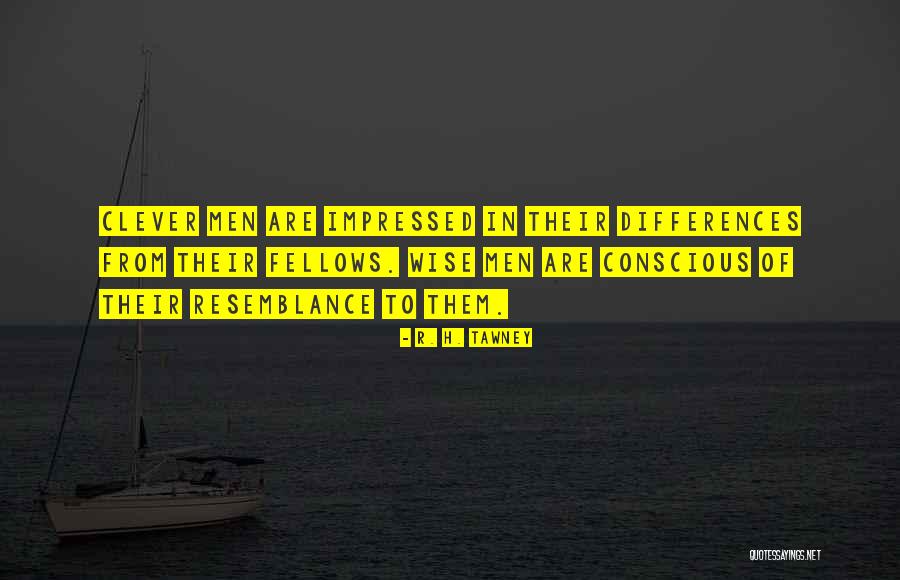
Clever men are impressed in their differences from their fellows. Wise men are conscious of their resemblance to them. — R. H. Tawney

If a man has important work, and enough leisure and income to enable him to do it properly, he is in possession of as much happiness as is good for any of the children of Adam. — R. H. Tawney
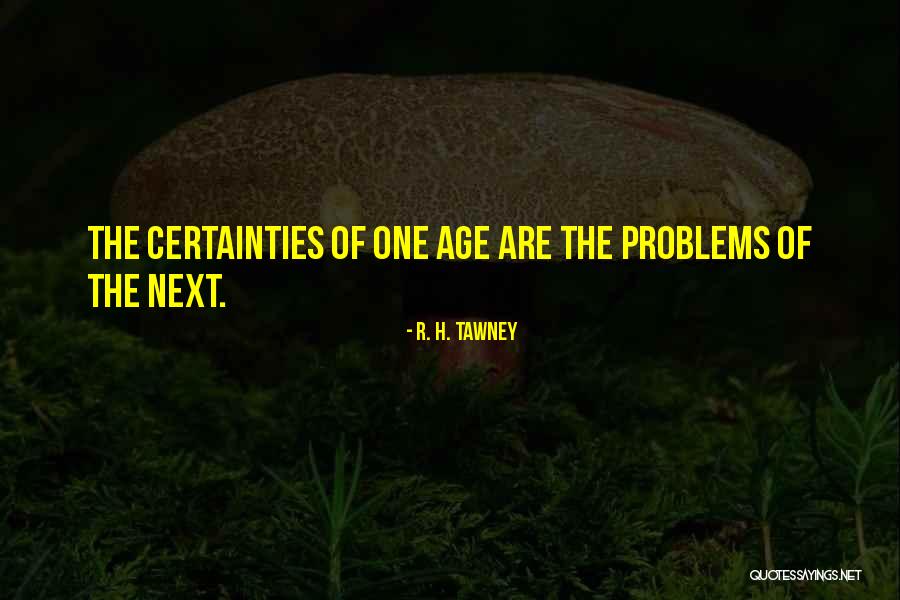
The certainties of one age are the problems of the next. — R. H. Tawney
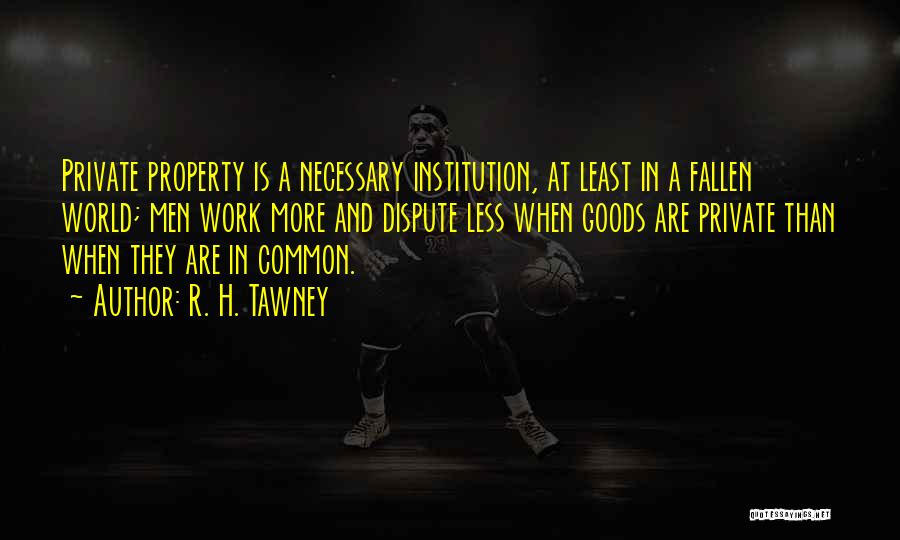
Private property is a necessary institution, at least in a fallen world; men work more and dispute less when goods are private than when they are in common. — R. H. Tawney
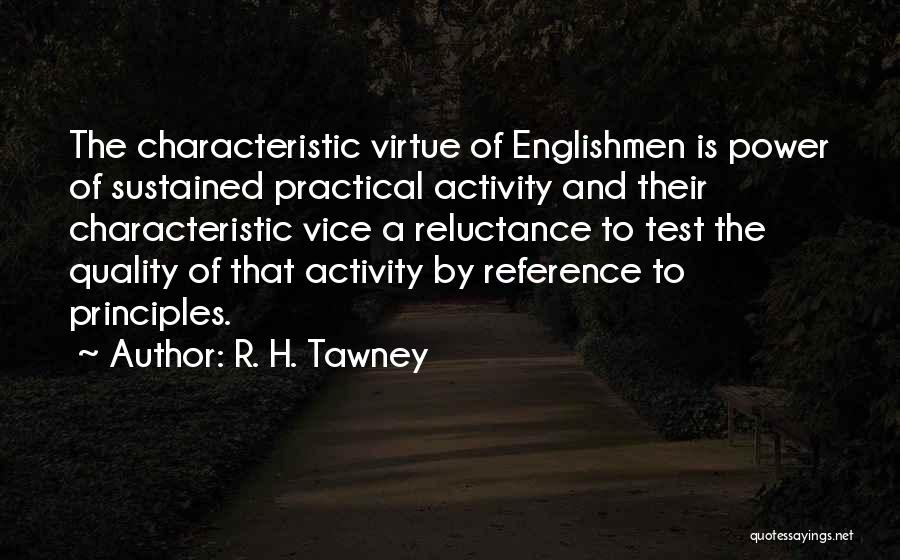
The characteristic virtue of Englishmen is power of sustained practical activity and their characteristic vice a reluctance to test the quality of that activity by reference to principles. — R. H. Tawney
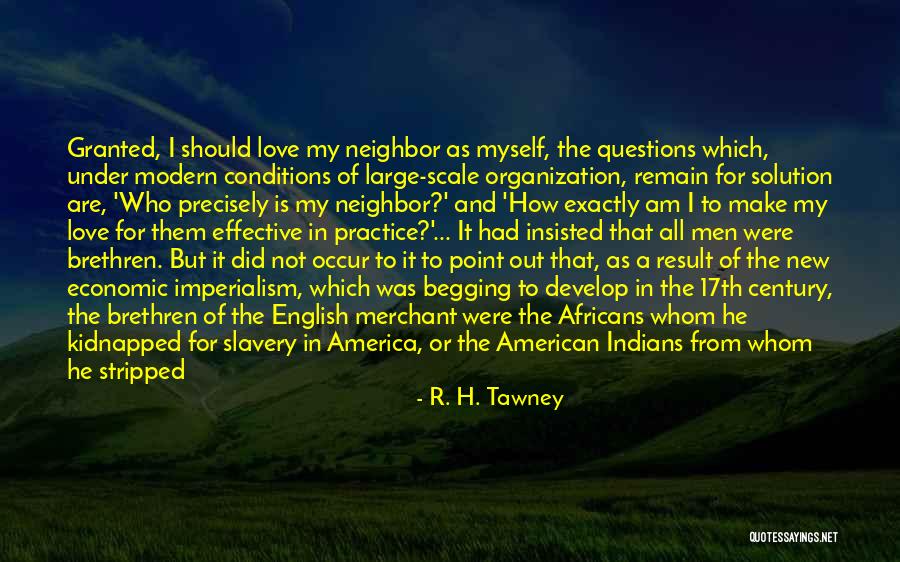
Granted, I should love my neighbor as myself, the questions which, under modern conditions of large-scale organization, remain for solution are, 'Who precisely is my neighbor?' and 'How exactly am I to make my love for them effective in practice?'... It had insisted that all men were brethren. But it did not occur to it to point out that, as a result of the new economic imperialism, which was begging to develop in the 17th century, the brethren of the English merchant were the Africans whom he kidnapped for slavery in America, or the American Indians from whom he stripped of their lands, or the Indian craftsmen whom he bought muslin's and silks at starvation prices. Religion had not yet learned to console itself for the practical difficulty of applying its moral principles by clasping the comfortable formula that for the transaction of economic life no moral principles exist. — R. H. Tawney
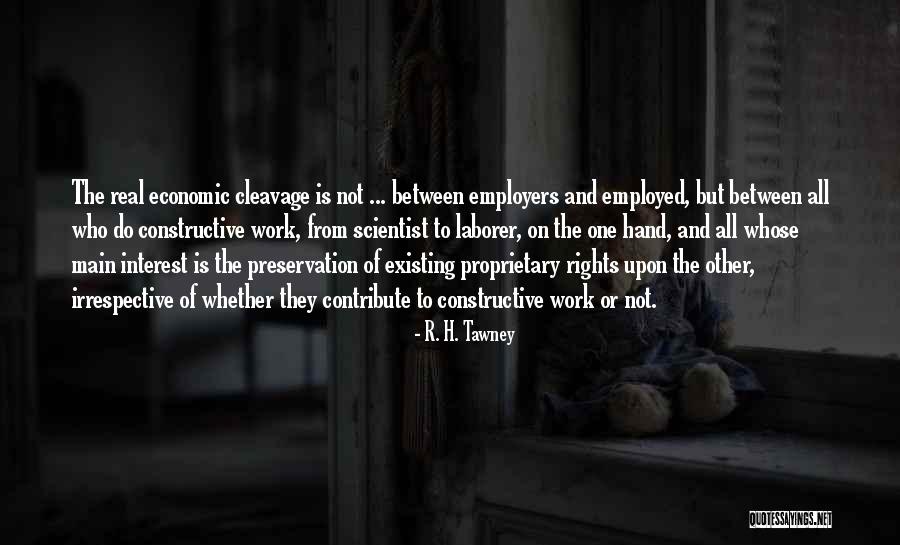
The real economic cleavage is not ... between employers and employed, but between all who do constructive work, from scientist to laborer, on the one hand, and all whose main interest is the preservation of existing proprietary rights upon the other, irrespective of whether they contribute to constructive work or not. — R. H. Tawney
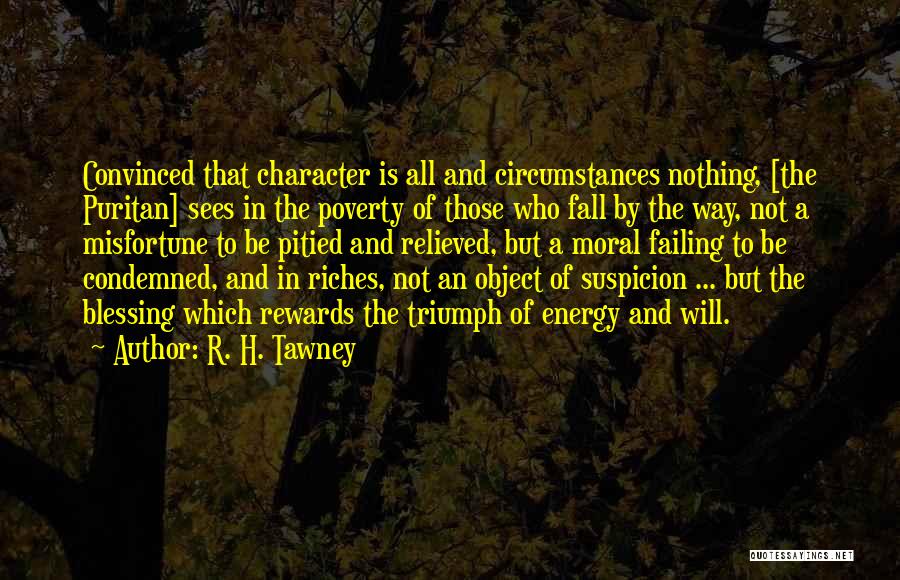
Convinced that character is all and circumstances nothing, [the Puritan] sees in the poverty of those who fall by the way, not a misfortune to be pitied and relieved, but a moral failing to be condemned, and in riches, not an object of suspicion ... but the blessing which rewards the triumph of energy and will. — R. H. Tawney
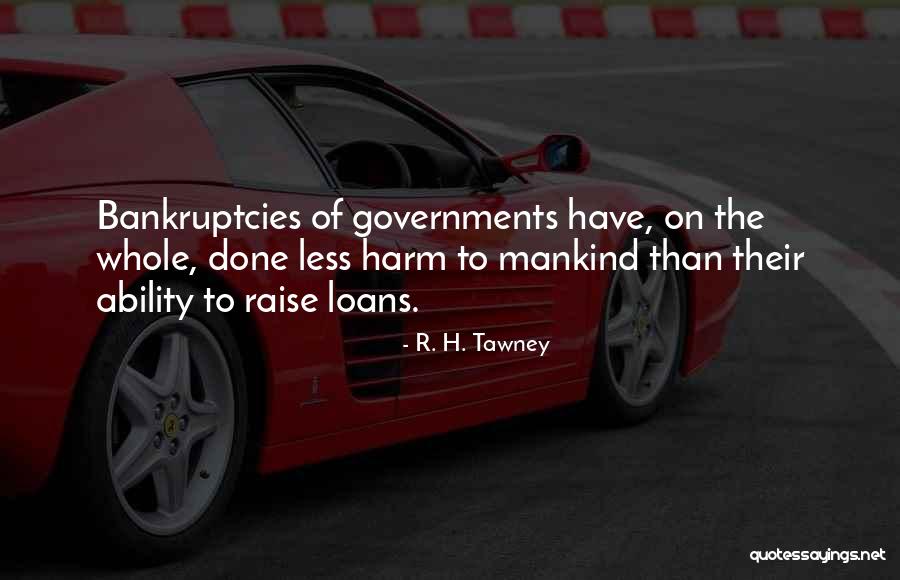
Bankruptcies of governments have, on the whole, done less harm to mankind than their ability to raise loans. — R. H. Tawney
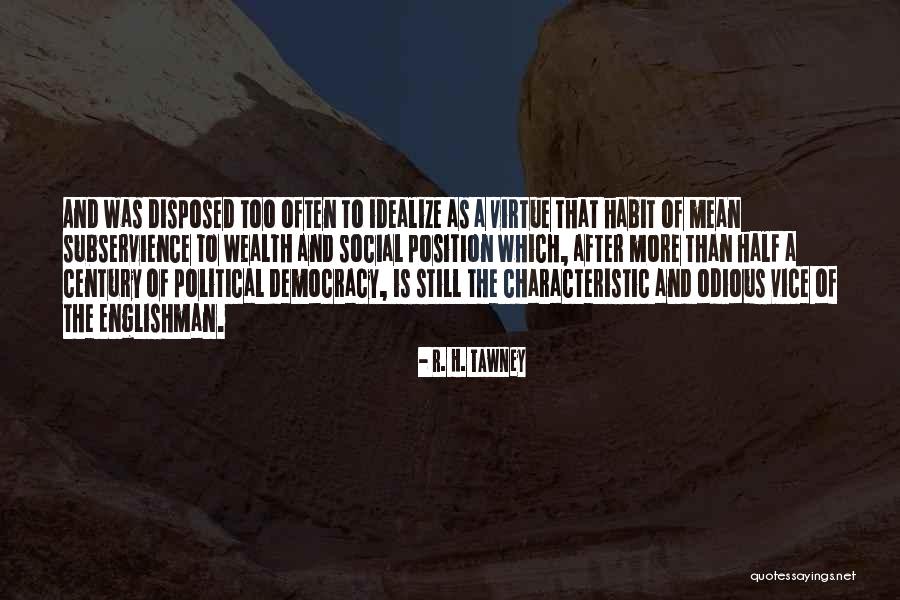
And was disposed too often to idealize as a virtue that habit of mean subservience to wealth and social position which, after more than half a century of political democracy, is still the characteristic and odious vice of the Englishman. — R. H. Tawney
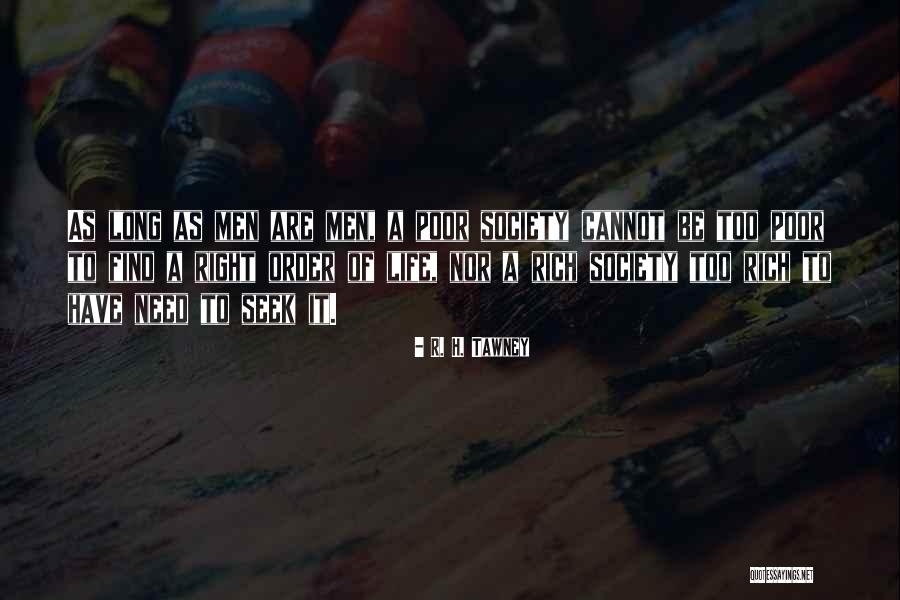
As long as men are men, a poor society cannot be too poor to find a right order of life, nor a rich society too rich to have need to seek it. — R. H. Tawney

It is not till it is discovered that high individual incomes will not purchase the mass of mankind immunity from cholera, typhus, and ignorance, still less secure them the positive advantages of educational opportunity and economic security, that slowly and reluctantly, amid prophecies of moral degeneration and economic disaster, society begins to make collective provision for needs which no ordinary individual, even if he works overtime all his life, can provide himself. — R. H. Tawney
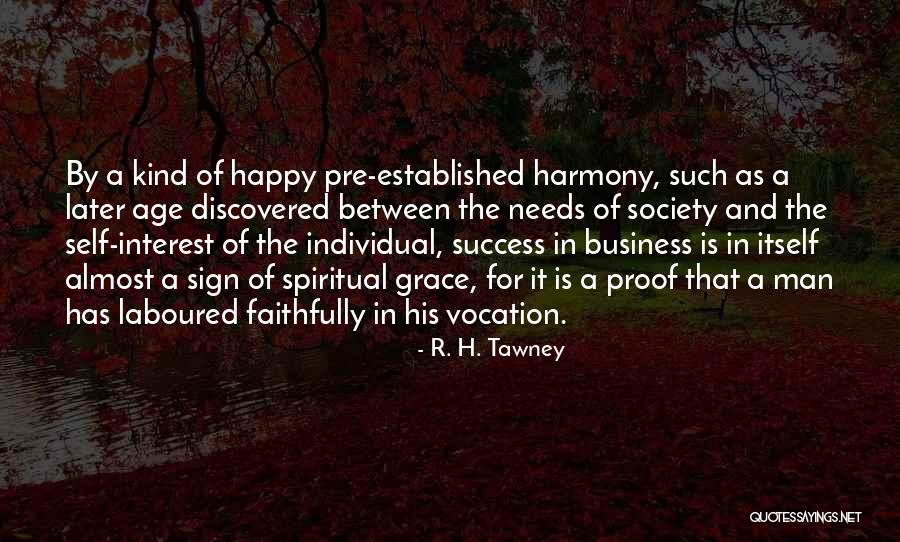
By a kind of happy pre-established harmony, such as a later age discovered between the needs of society and the self-interest of the individual, success in business is in itself almost a sign of spiritual grace, for it is a proof that a man has laboured faithfully in his vocation. — R. H. Tawney
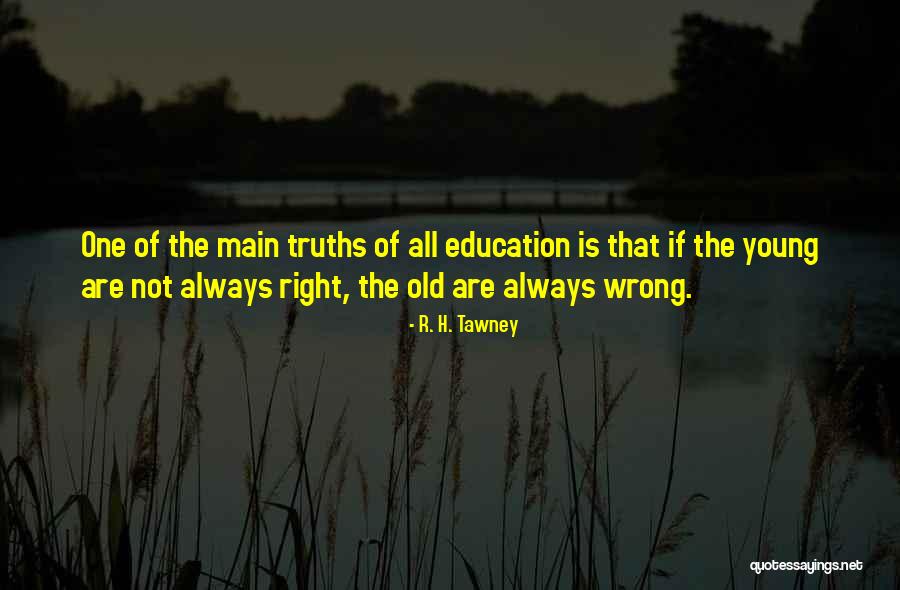
One of the main truths of all education is that if the young are not always right, the old are always wrong. — R. H. Tawney

When men have gone so far as to talk as though their idols have come to life, it is time that someone broke them. — R. H. Tawney
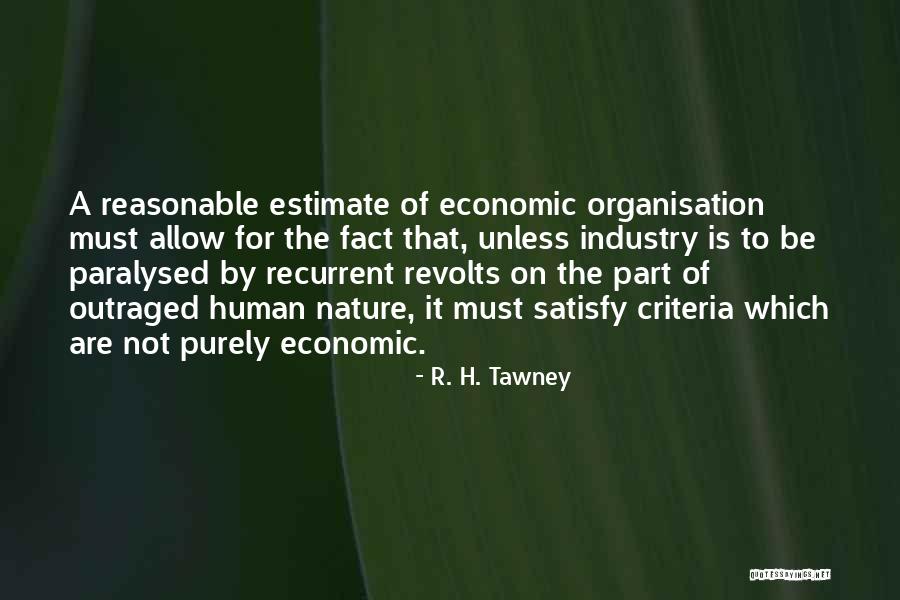
A reasonable estimate of economic organisation must allow for the fact that, unless industry is to be paralysed by recurrent revolts on the part of outraged human nature, it must satisfy criteria which are not purely economic. — R. H. Tawney
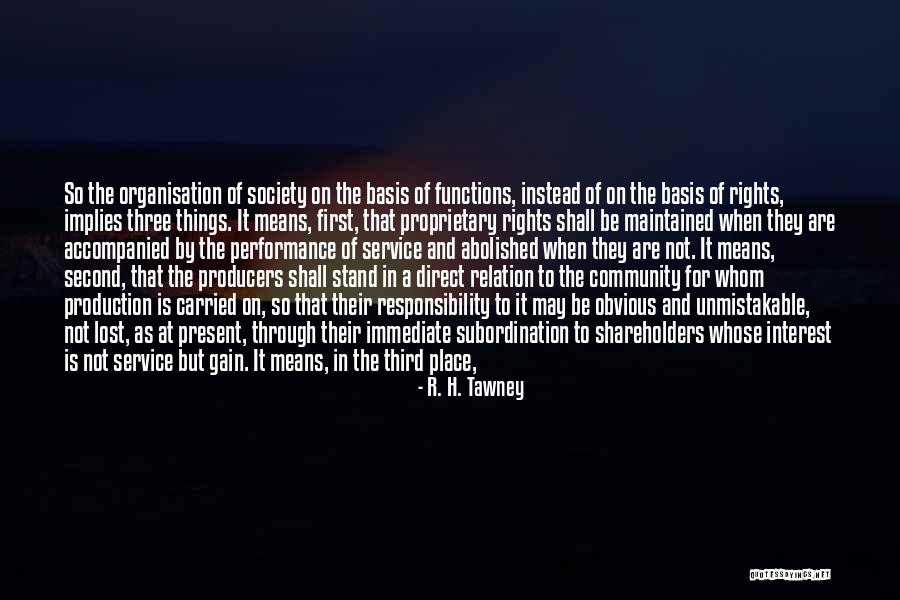
So the organisation of society on the basis of functions, instead of on the basis of rights, implies three things. It means, first, that proprietary rights shall be maintained when they are accompanied by the performance of service and abolished when they are not. It means, second, that the producers shall stand in a direct relation to the community for whom production is carried on, so that their responsibility to it may be obvious and unmistakable, not lost, as at present, through their immediate subordination to shareholders whose interest is not service but gain. It means, in the third place, that the obligation for the maintenance of the service shall rest upon the professional organisations of those who perform it, and that, subject to the supervision and criticism of the consumer, those organisations shall exercise so much voice in the government of industry as may be needed to secure that the obligation is discharged. — R. H. Tawney







